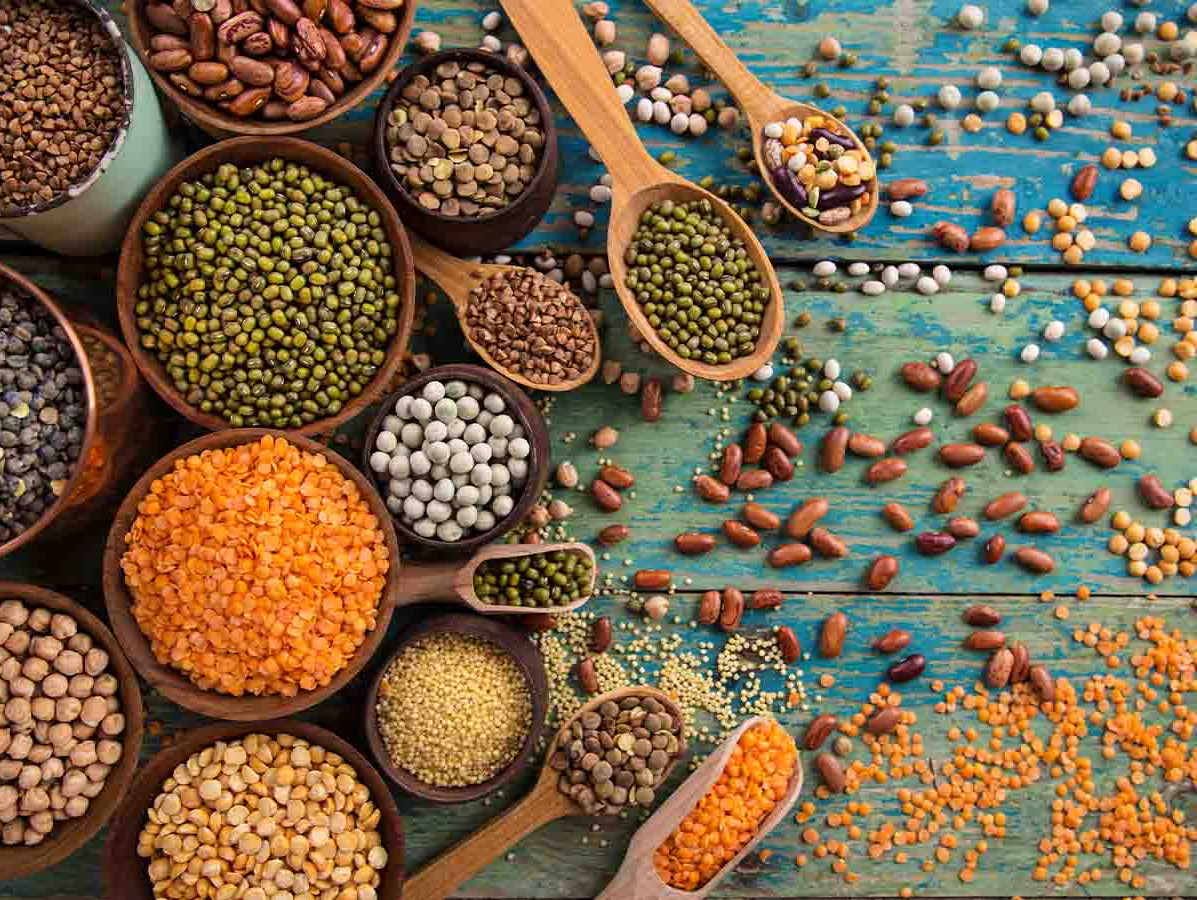We're currently searching through more than 4,000 articles, just a moment's patience...
We're currently searching through more than 4,000 articles, just a moment's patience...

By restructuring the European food system, 44% less agricultural land could be required and greenhouse gas emissions could be reduced by 70%. These findings come from model calculations by PhD candidate Wolfram Simon from Wageningen University & Research, published in Nature Food. The study combines circular agriculture and the protein transition, where plant-based proteins replace animal proteins.
Simon's calculations show that a fully plant-based diet is not necessarily the best for the planet. An optimal consumption of 40% animal protein proves to be more sustainable. Animal products provide essential nutrients, and animals can process plant-based residuals. This new food system requires reduced protein consumption and a focus on protein sources with lower environmental impact, such as growing crops in the most suitable locations and reusing organic waste.
The shift towards a more sustainable food system also means a change in our diet. More chicken and fish, and less beef, dairy, and eggs. Beef farming requires a lot of land and emits significant methane. Reducing beef consumption contributes to sustainability. A key method to achieve this is the cultivation of more legumes, such as soybeans, which can fix nitrogen from the air and reduce the need for artificial fertilizers. This research provides concrete data for policymakers to make better-informed decisions for a sustainable agriculture and food system.
Source: Wageningen University & Research
Vakblad Voedingsindustrie is a project of b2b Communications BV.
© COPYRIGHT 2025 VOEDINGSINDUSTRIE | ALLE RECHTEN VOORBEHOUDEN
Powered by Wallbrink Crossmedia © 2025
Een abonnement kost € 80,- exclusief 9% BTW per jaar.

We work in accordance with the privacy legislation. After your registration you will receive an e-mail with a confirmation link. Only after you have clicked on this link will you be registered as a recipient of the newsletter. If you can't find the e-mail in your inbox, please also look at unsolicited e-mail.


Lorem ipsum dolor sit amet, consectetuer adipiscing elit. Aenean commodo ligula eget dolor. Aenean massa. Cum sociis natoque penatibus et magnis dis parturient montes, nascetur ridiculus mus. Donec quam felis, ultricies nec





